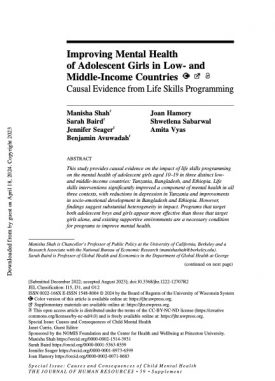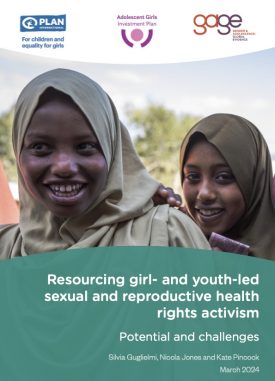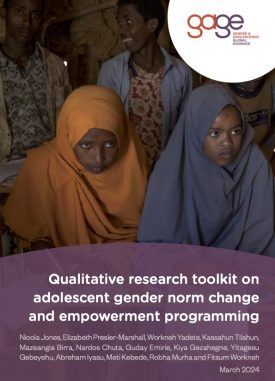Comprehensive sexuality education (CSE) is a well-established component of the package of interventions required to improve adolescent sexual and reproductive health and rights. As the international community has increased its emphasis on equity and leaving no-one behind with the Agenda for Sustainable Development, attention has been drawn to the need for complementary CSE programmes to reach young people who are not in school, or whose needs are not met by in-school CSE programmes. CSE in out-of-school contexts presents unique considerations, especially those related to facilitation. In this manuscript, we present the protocol for a multi-country implementation research study in Colombia, Ethiopia, Ghana, and Malawi to assess the feasibility, acceptability, and effectiveness of context-specific actions to prepare and support facilitators to deliver CSE in out-of-school settings to defined groups of young people with varying needs and circumstances. This study will be led by the World Health Organization and the UNDP/UNFPA/WHO/World Bank Special Programme of Research, Development and Research Training in Human Reproduction, in partnership with local research institutions. It will be nested within a multi-country programme led by UNFPA, in partnership with local implementing partners and with financial support from the Government of Norway. This study will shed new insight into what it takes to effectively deliver CSE in out-of-school contexts, to enhance progress towards the achievement of SDG 3 “Ensure healthy lives and promote wellbeing for all at all ages” and SDG 5 “Achieve gender equality and empower all women and girls”.
Suggested citation:
(2023) Protocol for a multi-country implementation research study to assess the feasibility, acceptability, and effectiveness of context-specific actions to train and support facilitators to deliver sexuality education to young people in out-of-school settings, Sexual and Reproductive Health Matters, 31:2, (10.1080/26410397.2023.2204043)


